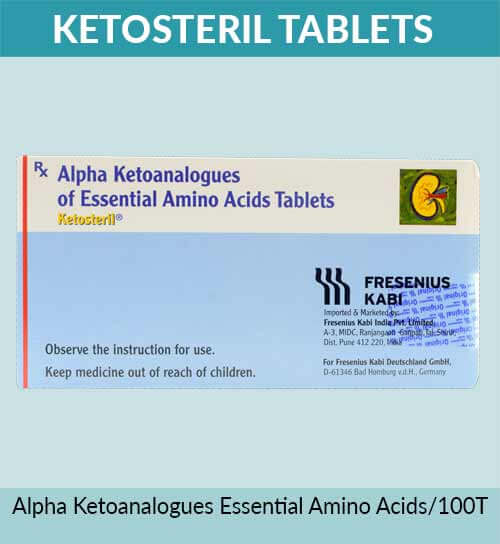Alpha-Ketoanalogues
Alpha-ketoanalogues, also known as keto acids, are an important component of medical nutrition therapy for individuals with chronic kidney disease (CKD). In CKD, the kidneys gradually lose their ability to filter waste products and maintain proper fluid and electrolyte balance. As a result, the accumulation of waste products, particularly urea and creatinine, in the bloodstream can lead to various complications.
Alpha-ketoanalogues are synthetic forms of essential amino acids, such as leucine, isoleucine, and valine, which are the building blocks of protein. These keto acids are structurally similar to their respective amino acids but lack the amino group. When ingested, alpha-ketoanalogues are converted to their corresponding amino acids through a process called transamination. This conversion occurs mainly in the liver and allows the body to utilize these keto acids as precursors for protein synthesis.
The purpose of using alpha-ketoanalogues in CKD is to provide a source of nitrogen that is less burdensome on the kidneys compared to intact proteins. By supplying keto acids instead of intact proteins, the production of nitrogenous waste products, such as urea, can be reduced. This helps alleviate the workload on the kidneys and slows down the progression of kidney dysfunction.
Additionally, alpha-ketoanalogues have been shown to have a few other beneficial effects in CKD. They can help maintain normal levels of essential amino acids, which may be compromised in CKD patients due to dietary restrictions and impaired kidney function. Moreover, these keto acids have been found to improve nitrogen balance, decrease protein catabolism, and promote the preservation of muscle mass.
Alpha-ketoanalogues are usually prescribed as a part of a comprehensive nutritional plan in conjunction with dietary modifications and other medications for the management of CKD. The dosage and frequency of administration are determined based on the severity of kidney dysfunction and individual patient needs.
Although generally well-tolerated, alpha-ketoanalogues may cause gastrointestinal side effects such as nausea, vomiting, and abdominal discomfort. These side effects can usually be minimized by adjusting the dosage and administration method.
In conclusion, alpha-ketoanalogues play a crucial role in medical nutrition therapy for individuals with chronic kidney disease. By providing a source of nitrogen without the excessive burden on the kidneys, these keto acids help manage protein metabolism and reduce the accumulation of waste products. Alongside dietary modifications and other interventions, alpha-ketoanalogues contribute to the overall management and slowing of kidney dysfunction in individuals with CKD.
Note – The brand names and product descriptions used on this site are for informational purposes only and are the property of their respective owners.

